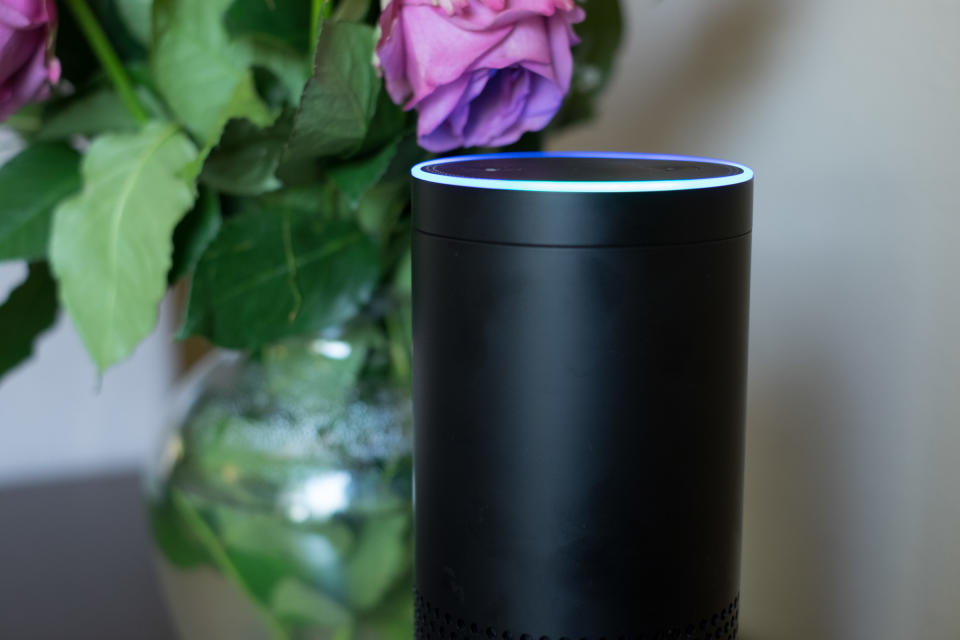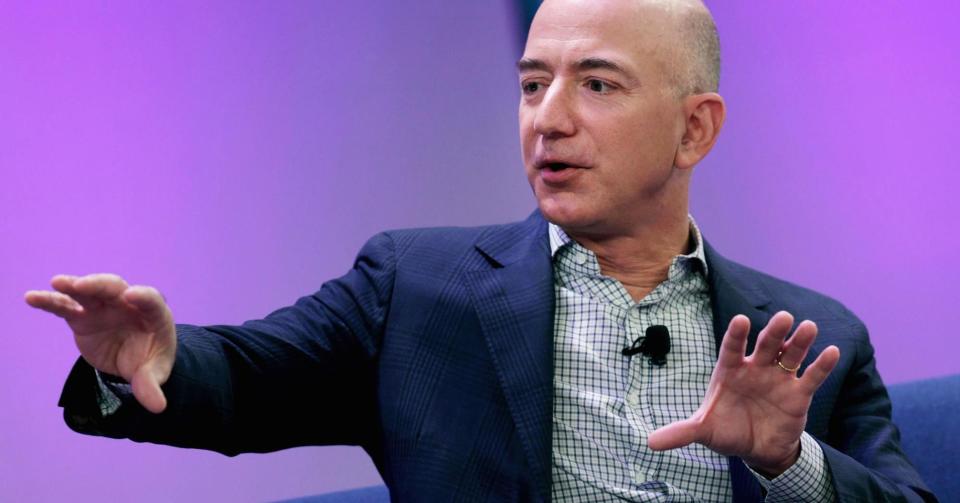RBC: 'Amazon has a potential mega-hit on its hands'
Alexa, the voice-activated personal assistant, could generate a whopping $10 billion in revenues for Amazon (AMZN) by 2020, according to a new report from RBC Capital Markets.
RBC analyst Mark Mahaney labeled Alexa-loaded devices a “material opportunity” for Amazon, which reports its first-quarter 2017 earnings on Thursday after the market closes.

“We think Amazon has a potential mega-hit on its hands with Alexa – a product/service that has the potential to materially increase the frequency and intensity of its relationship with customers,” Mahaney wrote in the report.
A sleeper hit
Since Amazon launched its first Alexa-loaded device in November 2014 — the voice-controlled Amazon Echo speaker — Alexa has become a sleeper hit. Initially, Alexa was somewhat limited in its capabilities: it could answer trivia questions, play music or order items from Amazon. But the company made Alexa substantially more useful when it opened up development to third-parties, so users could ask Alexa to dim their Philips Hue lights or crank up the temperature on their Nest Thermostat.
RBC conducted a survey on Alexa devices and found a dramatic increase in brand awareness and ownership. During a six-month span, brand awareness of Alexa rose from 33% to 77%, while the percentage of those surveyed who also owned an Alexa device climbed from 5% to 13%.
Moreover, over 50% of Alexa owners surveyed reported using the device on a daily basis, and 62% of Alexa owners said they were either “Extremely” or “Very Satisfied” with their purchase. (Which is despite the occasional notable snafu, like this past January, when reports surfaced of Alexa accidentally ordering dollhouses.)
100 million Alexa-enabled devices within the next 3-5 years

That must be music to Jeff Bezos’s ears. Amazon, which is notoriously opaque when it comes to specific sales figures for devices and services like Amazon Prime, sold well over 11 million Alexa devices as of December 2016, according to a report issued by Morgan Stanley this January. Mahaney, meanwhile, went one step further and predicted that Amazon could sell upwards of 100 million Alexa-enabled devices within the next three to five years.
In the interim, 2017 should also prove a big year for Alexa. At this January’s Consumer Electronics Show, third parties including Mattel, Whirlpool (WHR) and Hyundai showed off Alexa-enabled smart devices and appliances like air purifiers, refrigerators, even self-driving cars.
Still, Alexa could face stiff competition from other companies vying for consumer dollars in the so-called “smart home” space. Mahaney, for instance, expects Google’s (GOOG, GOOGL) own Alexa competitor, Google Home, to take off in the short-to-medium term, as well.
Just last week, Google announced that its Home device would be able to distinguish between different voices. As Yahoo Finance’s Dan Howley noted, this tackles a major flaw with home devices and Amazon would be wise to come up with its own voice recognition for Alexa.
—
JP Mangalindan is a senior correspondent for Yahoo Finance covering the intersection of tech and business. Follow him on Twitter or Facebook.
More from JP:
How Uber can fix its reputation
‘Silicon Valley’ star: This theme will dominate Season 4
Facebook exec: How Messenger can improve your social life
Netflix: Why our subscriber growth rates were disappointing
Jeff Bezos: Nobody asked for one of our most popular services
The 20 highest paying tech companies in America
Fitbit’s new smartwatch has been plagued by production mishaps
Gay tech workers earn less than their straight counterparts
